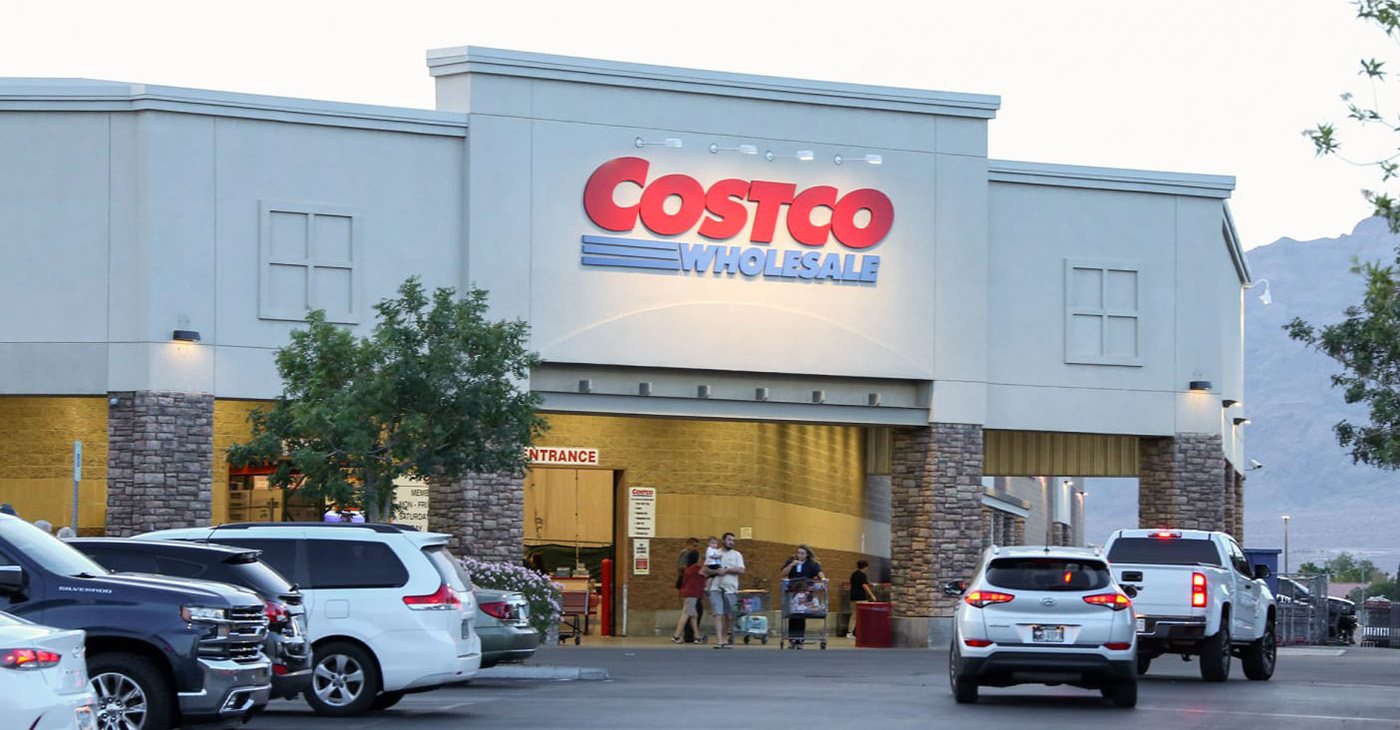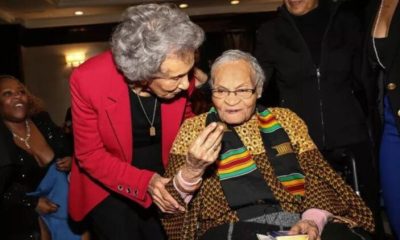Employment
Lawmakers Approve “Upward Mobility” Bill, Proposing More Slots for Blacks on State Boards, Commissions
The bill also directs the Department of Human Resources (CalHR) to develop model upward mobility goals to include race, gender, and LGBTQ identity as factors to the extent permissible under state and federal equal protection laws.

Assemblymember Chris Holden’s (D-Pasadena) ‘Upward Mobility Bill’ (AB 105) passed the California State Senate with a 29-to-8 vote on September 9.
The legislation promotes more opportunities for people of color in California’s civil services system and requires diversity on state boards and commissions. The bill now heads to the governor’s desk to either be signed into law or to be vetoed.
“Upward mobility is integral to achieving racial justice, and we should be setting the example,” said Holden. “The existing systems in place at our own state agencies fail to create inclusive workplace environments and hinder qualified individuals to move up within their department simply based on the color of their skin. Today, the Legislature took a bold step to fix the problem.”
Specifically, AB 105 would require the California State Personnel Board (SPB) to establish a process that includes best practices and emphasizes diversity in the announcement, design, and administration of exams for potential state employees.
The bill also directs the Department of Human Resources (CalHR) to develop model upward mobility goals to include race, gender, and LGBTQ identity as factors to the extent permissible under state and federal equal protection laws.
Additionally, AB 105 calls for state agencies to collect and report demographic data using more nuanced categories of Californians of African descent, similar to the data collected for Californians of Asian descent. This data will be critical in accurately reporting who among Californians of African descent is experiencing barriers to upward mobility.
Last year, Gov. Gavin Newsom signed AB 3121 into law, which was authored by former Assemblymember Dr. Shirley Weber, who is now Secretary of State. That bill established a task force to study and develop reparations proposals for African Americans. AB 105 would give the task force more accurate data to utilize in its deliberations.
CalHR data shows that the majority of non-white civil service personnel are paid a salary in the “$40,000 and below” range. When the salary range increases, the percentage of non-white civil servants working in upper-level or management positions decreases. The opposite is true for white civil servants who dominate in management and upper-level civil service positions.
The Sacramento Bee has published a series of letters written on behalf of Black employees working at state agencies such as the California Air Resources Board (CARB) and the California Department of Corrections and Rehabilitation with detailed accounts of how Black employees are passed up for promotions over white employees. The problem, however, is not limited to upward mobility. In early November, three Black employees at the California Office of Publishing found racial slurs written on cards at their desk.
“We already mandated the private sector to do their part. It’s time for the state to step up and do theirs,” said Holden.
Newsom has until Oct. 10, 2021, to sign the legislation.
Activism
Desmond Gumbs — Visionary Founder, Mentor, and Builder of Opportunity
Gumbs’ coaching and leadership journey spans from Bishop O’Dowd High School, Oakland High School, Stellar Prep High School. Over the decades, hundreds of his students have gone on to college, earning academic and athletic scholarships and developing life skills that extend well beyond sports.

Special to the Post
For more than 25 years, Desmond Gumbs has been a cornerstone of Bay Area education and athletics — not simply as a coach, but as a mentor, founder, and architect of opportunity. While recent media narratives have focused narrowly on challenges, they fail to capture the far more important truth: Gumbs’ life’s work has been dedicated to building pathways to college, character, and long-term success for hundreds of young people.
A Career Defined by Impact
Gumbs’ coaching and leadership journey spans from Bishop O’Dowd High School, Oakland High School, Stellar Prep High School. Over the decades, hundreds of his students have gone on to college, earning academic and athletic scholarships and developing life skills that extend well beyond sports.
One of his most enduring contributions is his role as founder of Stellar Prep High School, a non-traditional, mission-driven institution created to serve students who needed additional structure, belief, and opportunity. Through Stellar Prep numerous students have advanced to college — many with scholarships — demonstrating Gumbs’ deep commitment to education as the foundation for athletic and personal success.

NCAA football history was made this year when Head Coach from
Mississippi Valley State, Terrell Buckley and Head Coach Desmond
Gumbs both had starting kickers that were women. This picture was
taken after the game.
A Personal Testament to the Mission: Addison Gumbs
Perhaps no example better reflects Desmond Gumbs’ philosophy than the journey of his son, Addison Gumbs. Addison became an Army All-American, one of the highest honors in high school football — and notably, the last Army All-Americans produced by the Bay Area, alongside Najee Harris.
Both young men went on to compete at the highest levels of college football — Addison Gumbs at the University of Oklahoma, and Najee Harris at the University of Alabama — representing the Bay Area on a national level.
Building Lincoln University Athletics From the Ground Up
In 2021, Gumbs accepted one of the most difficult challenges in college athletics: launching an entire athletics department at Lincoln University in Oakland from scratch. With no established infrastructure, limited facilities, and eventually the loss of key financial aid resources, he nonetheless built opportunities where none existed.
Under his leadership, Lincoln University introduced:
- Football
- Men’s and Women’s Basketball
- Men’s and Women’s Soccer
Operating as an independent program with no capital and no conference safety net, Gumbs was forced to innovate — finding ways to sustain teams, schedule competition, and keep student-athletes enrolled and progressing toward degrees. The work was never about comfort; it was about access.
Voices That Reflect His Impact
Desmond Gumbs’ philosophy has been consistently reflected in his own published words:
- “if you have an idea, you’re 75% there the remaining 25% is actually doing it.”
- “This generation doesn’t respect the title — they respect the person.”
- “Greatness is a habit, not a moment.”
Former players and community members have echoed similar sentiments in public commentary, crediting Gumbs with teaching them leadership, accountability, confidence, and belief in themselves — lessons that outlast any single season.
Context Matters More Than Headlines
Recent articles critical of Lincoln University athletics focus on logistical and financial hardships while ignoring the reality of building a new program with limited resources in one of the most expensive regions in the country. Such narratives are ultimately harmful and incomplete, failing to recognize the courage it takes to create opportunity instead of walking away when conditions are difficult.
The real story is not about early struggles — it is about vision, resilience, and service.
A Legacy That Endures
From founding Stellar PREP High School, to sending hundreds of students to college, to producing elite athletes like Addison Gumbs, to launching Lincoln University athletics, Desmond Gumbs’ legacy is one of belief in young people and relentless commitment to opportunity.
His work cannot be reduced to headlines or records. It lives on in degrees earned, scholarships secured, leaders developed, and futures changed — across the Bay Area and beyond.
Activism
Oakland School Board Grapples with Potential $100 Million Shortfall Next Year
The school board approved Superintendent Denise Saddler’s plan for major cuts to schools and the district office, but they are still trying to avoid outside pressure to close flatland schools.

By Post Staff
The Oakland Board of Education is continuing to grapple with a massive $100 million shortfall next year, which represents about 20% of the district’s general fund budget.
The school board approved Superintendent Denise Saddler’s plan for major cuts to schools and the district office, but they are still trying to avoid outside pressure to close flatland schools.
Without cuts, OUSD is under threat of being taken over by the state. The district only emerged from state receivership in July after 22 years.
“We want to make sure the cuts are away from the kids,” said Kampala Taiz-Rancifer, president of the Oakland Education Association, the teachers’ union. “There are too many things that are important and critical to instruction, to protecting our most vulnerable kids, to safety.”
The school district has been considering different scenarios for budget cuts proposed by the superintendent, including athletics, libraries, clubs, teacher programs, and school security.
The plan approved at Wednesday’s board meeting, which is not yet finalized, is estimated to save around $103 million.
Staff is now looking at decreasing central office staff and cutting extra-curricular budgets, such as for sports and library services. It will also review contracts for outside consultants, limiting classroom supplies and examine the possibility of school closures, which is a popular proposal among state and county officials and privatizers though after decades of Oakland school closures, has been shown to save little if any money.
Bay Area
Post Salon to Discuss Proposal to Bring Costco to Oakland Community meeting to be held at City Hall, Thursday, Dec. 18
The proposed resolution would give authority to the City Administrator to negotiate terms for an exclusive negotiating agreement (ENA) with Deca Companies and Costco Wholesale Corporation to pursue a potential Costco development at 2008 Wake Ave. in the North Gateway Development Area of the former Oakland Army Base, adjacent to the Port of Oakland.

By Post Staff
The Oakland Post Salon will host a community meeting with District 3 City Councilmember Carroll Fife and city staff to discuss a proposal for building a Costco in Oakland.
The public meeting will be held Thursday, Dec. 18, from 6 p.m.-7:30 p.m. in City Council Chambers, Oakland City Hall, 3rd Floor at 1 Frank H. Ogawa Plaza in Oakland.
At the meeting, residents will have the opportunity to:
- Hear about a proposed resolution from Fife for Costco in Oakland
- Find out details from the City Administrator and Oakland’s Real Estate Division
- Ask questions, share ideas about benefits residents are looking for
- Make sure decision-makers know what residents need.
The proposed resolution would give authority to the City Administrator to negotiate terms for an exclusive negotiating agreement (ENA) with Deca Companies and Costco Wholesale Corporation to pursue a potential Costco development at 2008 Wake Ave. in the North Gateway Development Area of the former Oakland Army Base, adjacent to the Port of Oakland.
“As the D3 Council representative, my primary objective is to improve the lives of my constituents, who have endured generations of disinvestment and neglect,” said Fife. “For too long, our West Oakland community has lacked access to essential services, often forcing residents to leave Oakland to find quality options – including groceries. Our families deserve access to affordable groceries, and we want to keep those dollars and tax revenues within our city. This proposed ENA is an important step toward bringing a world-class retailer to Oakland and creating hundreds of good-paying jobs right here in District 3.”
Deca Companies, a San Francisco-based real estate investment and development firm, is leading the development project. Deca has extensive experience with major projects across California, including the redevelopment of the Phillips 66 Refinery in Southern California, large mixed-use California projects in Perris, Bakersfield, and Mead Valley; along with electric vehicle charging lots and industrial projects across the Bay Area and Southern California.
“We’re thrilled to be working with Councilmember Fife to bring a major grocery retailer to West Oakland,” said Travis Duncan, vice president of Deca Companies. “This project sends a clear message: Oakland is open for business. We’re proud to be part of the team working to help alleviate the food desert and bring affordable, high-quality groceries that can serve folks in Oakland and people from across the East Bay.”
Tony Beatty, longtime broker for Costco in the Bay Area noted, “While I cannot comment on the specifics of potential opportunities that are currently being evaluated, existing Costco locations in the Bay Area perform very well, and we have been looking at potential expansion opportunities where they can best serve their members.”
If approved by the full City Council, the City Administrator would be authorized to negotiate terms for an exclusive negotiating agreement with Deca Companies and Costco Wholesale Corporation, a critical first step. If negotiations are fruitful, the resulting ENA would come before the City Council for approval.
In the interim, community outreach and engagement will continue to ensure residents are included in the decision-making process in a meaningful way, according to a statement from Fife’s office.
-

 Activism4 weeks ago
Activism4 weeks agoDesmond Gumbs — Visionary Founder, Mentor, and Builder of Opportunity
-

 Activism4 weeks ago
Activism4 weeks agoFamilies Across the U.S. Are Facing an ‘Affordability Crisis,’ Says United Way Bay Area
-

 Alameda County4 weeks ago
Alameda County4 weeks agoOakland Council Expands Citywide Security Cameras Despite Major Opposition
-

 Alameda County4 weeks ago
Alameda County4 weeks agoBling It On: Holiday Lights Brighten Dark Nights All Around the Bay
-

 Activism4 weeks ago
Activism4 weeks agoBlack Arts Movement Business District Named New Cultural District in California
-

 Activism4 weeks ago
Activism4 weeks agoLu Lu’s House is Not Just Toying Around with the Community
-

 Activism4 weeks ago
Activism4 weeks agoOakland Post: Week of December 17 – 23, 2025
-

 Black History3 weeks ago
Black History3 weeks agoAlfred Cralle: Inventor of the Ice Cream Scoop





















































